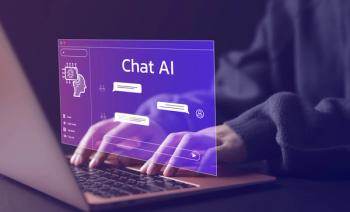
10 Digital Psychiatry Changes to Expect in 2017
This has been a busy year for mental health technologies, but 2017 promises to bring advances never before seen in psychiatry.
View the slides in PDF format.
References:
1. Firth J, Torous J, Yung AR. Ecological momentary assessment and beyond: The rising interest in e-mental health research. J Psychiatr Res. 2016;80:3-4. h
2. Agile Science. http://www.agilescience.org. Accessed November 11, 2016.
3. Torous J, Kiang MV, Lorme J, Onnela JP. New Tools for New Research in Psychiatry: A Scalable and Customizable Platform to Empower Data Driven Smartphone Research. JMIR Ment Health. 2016;3(2):e16.
4. Torous J, Baker JT. Why Psychiatry Needs Data Science and Data Science Needs Psychiatry: Connecting With Technology. JAMA Psychiatry. 2016;73:3-4.
5. Riva G, Gutiérrez-Maldonado J, Wiederhold BK. Virtual Worlds versus Real Body: Virtual Reality Meets Eating and Weight Disorders. Cyberpsychol Behav Soc Netw. 2016;19:63-66.
6. Electronic Health Information: HHS Needs to Strengthen Security and Privacy Guidance and Oversight. GAO US Government Accountability Office. September 16, 2016.
7. U.S. Department of Health and Human Services. Examining Oversight of the Privacy and Security of Health Data Collected by Entities Not Regulated by HIPAA. July 19, 2016.
. Accessed November 11, 2016.
8. U.S. Department of Health and Human Services. ONC announces Blockchain challenge winners. September 1, 2016.
9. Federal Trade Commission. Lumosity to Pay $2 Million to Settle FTC Deceptive Advertising Charges for Its “Brain Training” Program. January 5, 2016.
10. Torous J, Powell A, Michael B, Knable MB. Quality assessment of self-directed software and mobile applications for the treatment of mental illness. Psychiatr Annals. 2016;46:579-583.
11. Gordon M, Henderson R, Holmes JH, et al. Participatory design of ehealth solutions for women from vulnerable populations with perinatal depression. J Am Med Inform Assoc. 2016;23:105-109.
12. Chan SR, Torous J, Hinton L, Yellowlees P. Mobile Tele-Mental Health: Increasing Applications and a Move to Hybrid Models of Care. Healthcare. 2014, 2, 220-233.
12. Donker T, Blankers M, Hedman E, et al. Economic evaluations of Internet interventions for mental health: a systematic review. Psychol Med. 2015;45:3357-3376.
Newsletter
Receive trusted psychiatric news, expert analysis, and clinical insights — subscribe today to support your practice and your patients.







